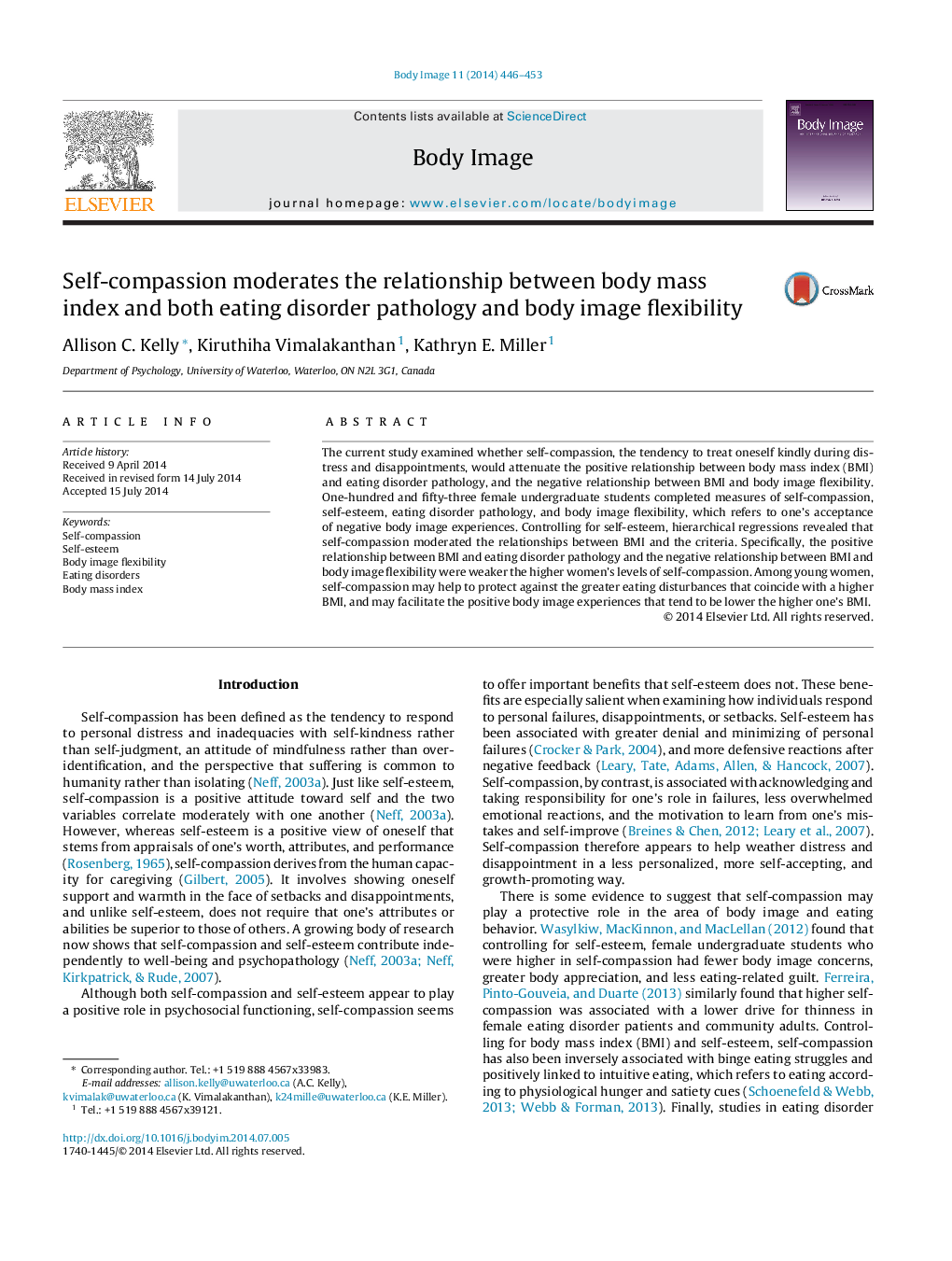| Article ID | Journal | Published Year | Pages | File Type |
|---|---|---|---|---|
| 902826 | Body Image | 2014 | 8 Pages |
•BMI related positively to eating pathology in women lower in self-compassion.•BMI was unrelated to eating pathology in women higher in self-compassion.•BMI related negatively to body image flexibility in women lower in self-compassion.•BMI was unrelated to body image flexibility in women higher in self-compassion.
The current study examined whether self-compassion, the tendency to treat oneself kindly during distress and disappointments, would attenuate the positive relationship between body mass index (BMI) and eating disorder pathology, and the negative relationship between BMI and body image flexibility. One-hundred and fifty-three female undergraduate students completed measures of self-compassion, self-esteem, eating disorder pathology, and body image flexibility, which refers to one's acceptance of negative body image experiences. Controlling for self-esteem, hierarchical regressions revealed that self-compassion moderated the relationships between BMI and the criteria. Specifically, the positive relationship between BMI and eating disorder pathology and the negative relationship between BMI and body image flexibility were weaker the higher women's levels of self-compassion. Among young women, self-compassion may help to protect against the greater eating disturbances that coincide with a higher BMI, and may facilitate the positive body image experiences that tend to be lower the higher one's BMI.
